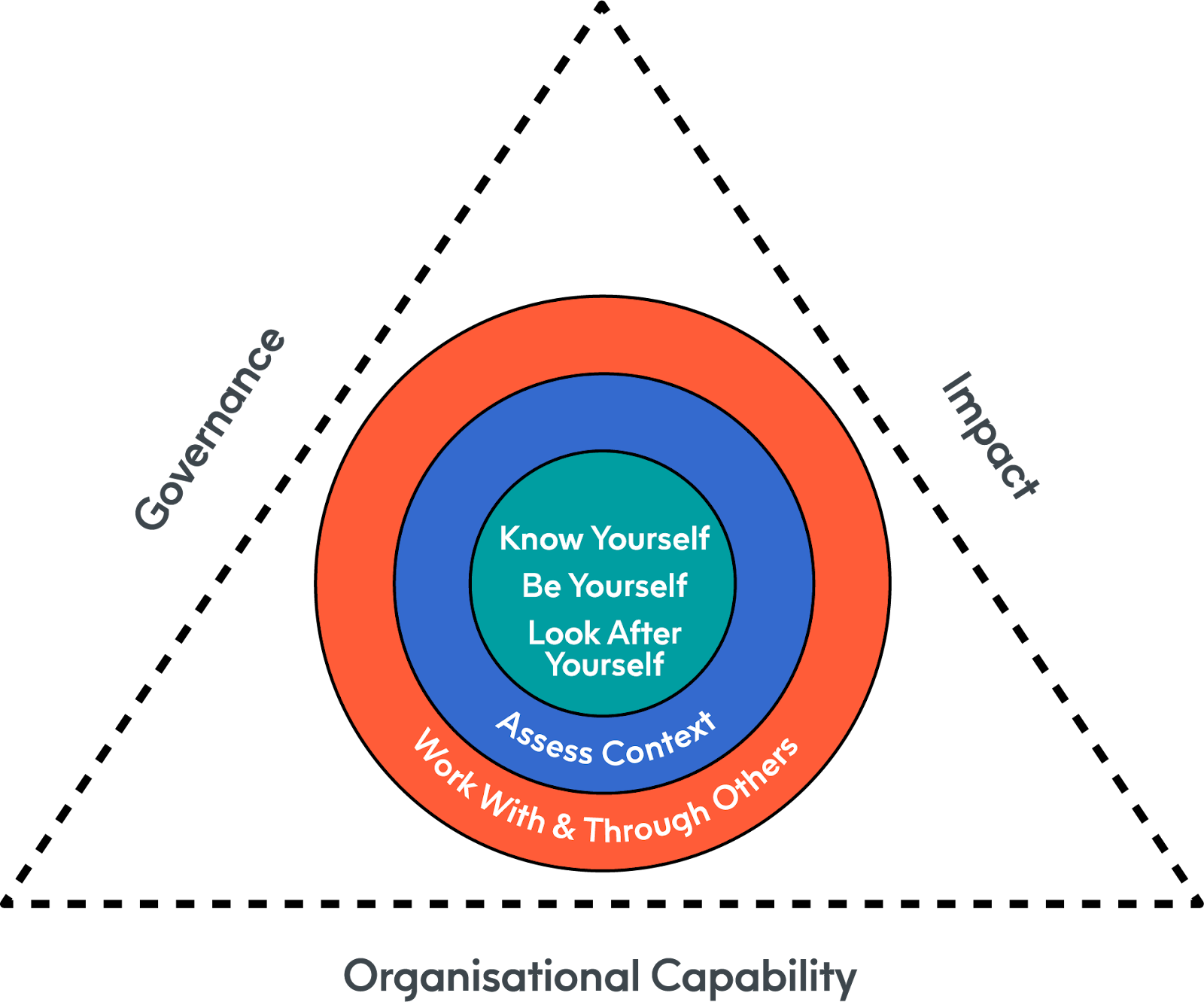
Self-awareness is the ability to see yourself objectively, including your strengths, weaknesses, and preferred leadership style. Self-awareness is developed through a careful and deliberate examination of yourself and how you relate to others.
Self-awareness is the core of the Clore Social Leadership Development Model and the foundation of personal growth. Understanding yourself is key to understanding others, and therefore to generous leadership behaviours. Fundamentally, this means knowing where your strengths and weaknesses lie. In the workplace, this often translates into accepting feedback graciously; understanding and empathising with your team; and being confident in your abilities.

Take Hugo and Kate as examples. Hugo is Head of Programmes at his organisation and often attends Trustee Meetings to provide an update on programme activities. For a recent meeting, he asked his direct report Kate to write a monitoring and evaluation report. However, Kate became busy with other projects and failed to provide the report in time for the meeting. How might self-awareness, or a lack of, affect Hugo and Kate’s working relationship in this situation?
Interestingly, researchers have shown that a lack of self-awareness actually leads to an inflated sense of one’s abilities. Many un-self-aware people won’t accept critical feedback; cannot understand others’ perspective; and will take credit for successes whilst blaming others for failures.
In the example above, Kate lacked the self-awareness to realise that she did not have the time to take on an additional assignment or would need to manage her time in order to make the deadline. If she had, she might have let Hugo know early on that she would need to deprioritise another task in order to complete it.
If Hugo also suffers from a deficit of self-awareness, he might not be able to relate to the pressure Kate was under, and blame her for neglecting to manage her time. He might even throw her under the bus to the Trustees and let them know why they do not have the report.
Research suggests that both internal and external self-awareness is one of the most critical elements of effective leadership. Acknowledging your skills and limitations as a leader enables you to be proactive about self-development and focus on improving your leadership skills.
In addition, having greater self-awareness can lead to stronger relationships with peers, as it increases your listening and communication skills. Self-awareness is also linked to the ability to project thoughts, feelings, desires and other mental states onto others--in other words, being aware of your own mental processes better enables you to empathise with and relate to others.
Let’s return to Hugo and Kate. Upon missing her deadline, Kate could show self-awareness by acknowledging that she made a mistake, why it happened, and how she could avoid making the same mistake in the future. She could also take concrete steps to improve her time management skills, as she has now identified this as a potential area of development.
Hugo, for his part, could try to understand why Kate did not come to him earlier, and what pressure she might be under to finish her tasks on time. He could self-evaluate to see where he could help as a manager, and work with her to improve her communication and time management skills.
Increased self-awareness is one of the key outcomes of our Emerging Leader programme. Commencing October 2022, the six-month programme is designed to help emerging leaders build their leadership potential, strengthen their networks, and drive social change. If you, or a relevant colleague, are looking to develop your leadership potential then we invite you to find out more about the upcoming programme.